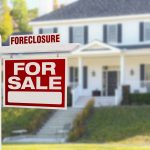The Las Vegas Short Sale Market: From Then Till Now
Las Vegas’ housing market has traditionally been considered a weak one, with banks dominating local real estate. But as the market improves home owners are managing to do fine without their help.
The Greater Las Vegas Association of Realtors says that as of January 2014, 70% of used home sales are comprised of private buyer seller deals. That is an improvement of 19% from 12 months ago and an increase of 26% compared to two years ago.
As Las Vegas makes its slow recovery from the recession it is evident that both locals and investors are buying and selling properties in the market.
The banks are still actively involved in handling the short sales market, but there are decidedly fewer foreclosures. Short sales made up nearly 50% of all real estate deals a year ago but now only account for 21%.
Remember that the “short” reference in the name is not a reference to time span, it is a reference to paying short on your mortgage. If anything a short sale could turn into a lengthy process so be prepared.
Foreclosures On The Demise
One of the reasons short sales have become so popular in the Las Vegas property market is the attractive alternative they present to foreclosures. In Fall of 2012 Nevada signed in its robosigning law. This forced the banks to deliver more paperwork before they could seize homes. This has slowed down foreclosures significantly and reduced the number of homes for sale by the bank.
The Short Sale Market
When the Las Vegas property market decreased in value, lots of investors entered it, with the intention of buying short sale properties cheaply and renting them out. This demand resulted in Las Vegas property values growing at one of the fastest rates in the country.
In November 2013 the median price of a Las Vegas home stood at $167 000, a 31% increase from a year ago. However in the third quarter of last year it emerged that 40% Las Vegas’ home owners who had mortgages were upside down, or had debt greater than the value of their homes. This gave Las Vegas the highest rate in the United States, but it was still well below 71%, the national peak two years ago.
A Different Response To The Ups And Downs Of The Las Vegas Property Market
Some Las Vegas home owners have made peace with the market trend, opting to wait it out and escape negative equity. If the values do rise they have the opportunity of making a traditional sale without the need to enter into short sale negotiations. Economics experts argue that home owners are no longer as panicked as they used to be about the prospect of a short sale. And while there are still short sales available, there are a lot fewer than there used to be.
The lesson that can be learnt from this, is that you can also postpone or avoid a short sale simply by being patient. If you have no reason to sell right now, then don’t do it.
The Short Sale Market In 2013
The short sale market took off in 2013 as the result of a combination of a number of different factors. The first major factor was banks issuing default notices to home owners who were not paying their monthly installments. By contrast notices were not issued towards the end of 2012, resulting in the foreclosure rate dropping to an all-time low in December of that year.
Secondly the Co-operative Short Sale Program incentivized all major lenders to enter into short sales. Thirdly the Mortgage Forgiveness Debt Relief Act was extended until the end of 2013, from its original date at the end of 2012.
From Then Till Now
Since they appeared for the first time in 2007 short sales have changed tremendously. At that time it was very difficult to convince banks to take up the short sale process. These days the banks also want to avoid foreclosures and are more receptive to adopting short sales as an alternative to help achieve that.
The Short Sale Market In 2014
The number of short sales has had a positive influence on the Las Vegas property market to date. The market is now experiencing something of a revival as foreclosed and short sale buyers have used their opportunities and re-entered the market.
Short Sale Advice For Property Buyers In Las Vegas
It is advisable that buyers keep a buffer between their offering price and what they could end up paying for a property. Counter offers from lenders have become more popular for properties in the short sale market, sometimes asking between 3 and 5% higher than the original asking price if a buyer is interested.
The counter offers are sometimes used as short sales can turn into lengthy processes. The short sale market for properties under $100 000 is especially solid at the moment.
An experienced short sale realtor who has proven success dealing with properties that are under water will be able to help you make an informed decision about your property and how to sell it. Remember that vacant homes cost the banks more money so if you really cannot sell, it is in the bank’s best interests to accept a short sale. Your short sale agent will be able to help you apply with your lender. He or she will also help you to be prepared for the process and advice you how long it should take, so you can make all the other necessary arrangements.
There are a number of specialist short sale agents working in Las Vegas who all have significant experience handling short sale properties. If you need to make a choice shortlist from those who have sold the most properties.
Short sales have helped a number of Las Vegas residents to change their lives and take control of their finances again. They present a proverbial lifeline to people who owe more than they can sell their homes for on their mortgages.



Leave a Reply
Want to join the discussion?Feel free to contribute!